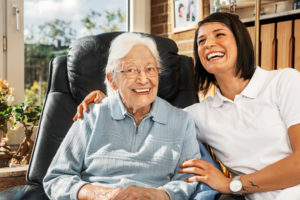EPA-Approved Products Proven To Kill The COVID-19 Virus
The CDC states that the primary and most important mode of transmission for COVID-19 is through close contact from person-to-person. Based on data from lab studies on COVID-19 and what is know about similar respiratory diseases, it may be possible that a person can get COVID-19 by touching a surface or object that has the virus on it and then touching their own mouth, nose, or possibly their eyes, but this isn’t thought to be the main way the virus spreads.
Best practices to minimize the possibility of transmission is to sanitized all surfaces, especially frequently touched surfaces as often with a sanitiser that kills the SARS-CoV-2 virus that causes COVID-19.
The U.S. Environmental Protection Agency (EPA) has added to its list of products that have proven effective in killing the new coronavirus (SARS-CoV-2) on hard surfaces, based laboratory testing. This update brings the total number of products approved by the EPA for use against SARS-CoV-2 virus to 23 products:
1. Lysol Disinfectant Spray
Active ingredients: Quaternary ammonium, ethanol (ethyl alcohol)
EPA registration number: 777-99
2. Lysol Disinfectant Max Cover Mist
Active ingredients: Quaternary ammonium, ethanol (ethyl alcohol)
EPA registration number: 777-127
3. Lysol Disinfecting Wipes (all scents)
Active ingredients: Quaternary ammonium
EPA registration number: 777-114
4. Lysol Laundry Sanitizer
Active ingredients: Quaternary ammonium
EPA registration number: 777-128
5. Lonza Formulation R-82
Active ingredients: Quaternary ammonium
EPA registration number: 6836-78
6. Lonza Formulation S-21
Active ingredients: Quaternary ammonium
EPA registration number: 6836-75
7. Lonzagard RCS-256 Plus
Active ingredients: Quaternary ammonium
EPA registration number: 6836-349
8. Lonzagard RCS-128 PLUS
Active ingredients: Quaternary ammonium
EPA registration number: 6836-348
9. Lonzagard RCS-128
Active ingredients: Quaternary ammonium
EPA registration number: 6836-347
10. Lonzagard RCS-256
Active ingredients: Quaternary ammonium
EPA registration number: 6836-346
11. Lonza Formulation R-82F
Active ingredients: Quaternary ammonium
EPA registration number: 6836-139
12. Lonzagard R-82G
Active ingredients: Quaternary ammonium
EPA registration number: 6836-381
13. Lonza Formulation S-18
Active ingredients: Quaternary ammonium
EPA registration number: 6836-77
14. Lonza Formulation DC-103
Active ingredients: Quaternary ammonium
EPA registration number: 6836-152
15. Lonza Formulation S-21F
Active ingredients: Quaternary ammonium
EPA registration number: 6836-140
16. Lonza Formulation S-18F
Active ingredients: Quaternary ammonium
EPA registration number: 6836-136
17. Lonza Disinfectant Wipes
Active ingredients: Quaternary ammonium
EPA registration number: 6836-313
18. Lonza Nugen Low Streak Disinfectant Wipes
Active ingredients: Quaternary ammonium
EPA registration number: 6836-382
19. Lonza Disinfectant Wipes Plus
Active ingredients: Quaternary ammonium
EPA registration number: 6836-336
20. Lonza Disinfectant Wipes Plus 2
Active ingredients: Quaternary ammonium
EPA registration number: 6836-340
21. Clorox Commercial Solutions Clorox Disinfecting Wipes
Active ingredients: Quaternary ammonium
EPA registration number: 67619-31
22. Clorox Disinfecting Wipes
Active ingredients: Quaternary ammonium
EPA registration number: 5813-79
23. CDW (from The Clorox Company)
Active ingredients: Quaternary ammonium
EPA registration number: 5813-113
It is also important to wash your hands often or use hand sanitizer correctly when soap and water are not available.
For a PDF version please click here.
About Unique HomeCare Services
Unique HomeCare Services is headquartered in Norwood, Massachusetts and serves the Greater Boston communities in Suffolk, Middlesex, Norfolk, Bristol, and Plymouth counties.
Unique HomeCare Services provides private in-home care for elders, those with Alzheimer’s or Dementia, and people who are recuperating from illness, injury, or surgery.
We provide both short-term and long-term in-home care needs from as little as one 4 hour day a week to 24 Hour Care and Live-In Care.
We offer a full range of in-home personal care services including Bathing, Personal Hygiene and Grooming, Dressing Assistance, Toileting and Incontinence, Feeding, and Medication Reminders.
We also provide support services such as Case Management, Accompaniment to Appointments, Nutrition and Meal Management, Light Housekeeping and Laundry Services, Bed and Wheel Chair Transfers, and Shopping and Running Errands.
It is our pleasure to assist our veteran clients with VA Aid and Attendance Benefit approval at no cost.
We have an extensive Directory of Online Senior and Caregiver Resources for the information you need.
To schedule a no cost and no obligation In-Home Assessment to determine the home care needs and get a quote, please call us to speak to a Case Manager at (800) 296-9962 or fill out our Free Quote Contact Form.

 If soap and water are not available, using a hand sanitizer with at least 60% alcohol can help you avoid getting sick and spreading germs to others.
If soap and water are not available, using a hand sanitizer with at least 60% alcohol can help you avoid getting sick and spreading germs to others.



